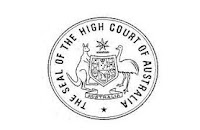It's time for Canada to improve its military tribunals, not abolish them. And 'civilianization' is not necessarily the only, or the best, way to do so. In the Hill Times article linked below, I describe the two emerging and different streams of military justice reform: what can be characterized as the Euro-Continental model and the Anglo Common Law model. As Canada's legal framework - including much of the framework in Quebec, notwithstanding its civil system of legislation - follows the Anglo Common Law model, it is unsurprising that her system of military justice has followed suit.
In
R v Stillman, 2019 SCC 40, the Supreme Court of Canada again rejected the argument that a separate system of military justice was unconstitutional or improper. However, this does not mean that Canada's military justice system cannot be improved or is invulnerable to further constitutional challenge. Indeed, a 'Notice of Constitutional Question' was recently filed in a court martial proceeding (the hearing of which will undoubtedly be affected by COVID-19 protocols) challenging the independence of the military bench due to military judges being subject to the Code of Service Discipline.
This issue had been raised in two prior courts martial -
R v MCpl Pett, 2020 CM 4002 and
R v Cpl D'Amico, 2020 CM 2002 - however, a Notice of Constitutional Question had not been raised in either of those cases. As a result, the judgments in those cases were focused principally on a directive from the Chief of the Defence Staff (CDS) that appeared to place military judges under the disciplinary decision-making of the Deputy Vice Chief of the Defence Staff. Not surprisingly, in both
Pett and
D'Amico, the military judges held that the CDS directive had no force or effect. The judgments also suggested that military judges, whose conduct can be subject to review by the Military Judges Inquiry Committee (MJIC), are therefore not subject to the Code of Service Discipline.
However, as there had not been a Notice of Constitutional Question filed in either
Pett or
D'Amico, the extent to which the judgments comment on the applicability of the Code of Service Discipline is properly viewed as
obiter dicta. Additionally, there remains a compelling argument that the MJIC process is not a proper substitute for either the Code of Service Discipline or the
Criminal Code in terms of misconduct by persons who happen to be military judges. There is a hint of such a view in the judgment of Justice Martineau in
Canada (Director of Military Prosecutions) v Canada (Office of the Chief Military Judge), 2020 FC 330, at para 42. I expand upon this issue
here,
here and
here.
Ultimately, a significant reform that would correct many procedural challenges and inefficiencies is the establishment of courts martial as standing courts, rather than
ad hoc courts convened on an individual basis. This is not a novel recommendation and is one that, arguably, has been a repeated recommendation that has been perennially ignored for many years.
The goal should be meaningful reform of the military justice system in order to ensure independence of the judiciary, expertise, portability, uniformity of application within the armed forces, and efficiency. The military justice system in Canada need not be 'civilianized' to accomplish these goals. But any reform should be pursued based upon a principled approach, where satisfaction of these principles, rather than a pre-ordained structure, is the end-state.
https://www.hilltimes.com/2020/06/10/time-for-canada-to-improve-military-tribunals-not-abolish-them/251925
































